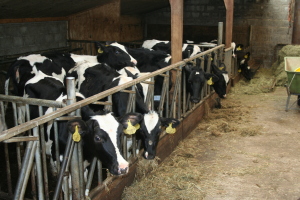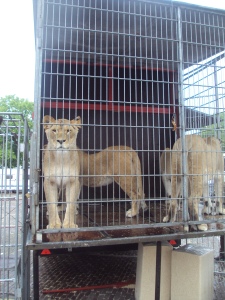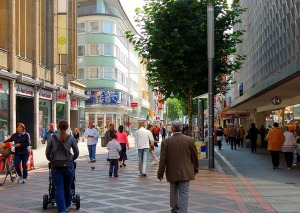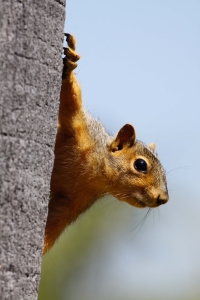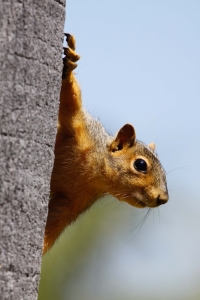Worldlog week 5 – 2015
Afgelopen week debatteerde de Tweede Kamer op ons verzoek over de bio-industrie. Het is onbegrijpelijk dat het kabinet kiest voor verdere groei van de veestapel, ondanks de schadelijke effecten op dierenwelzijn, voedselveiligheid, natuur en milieu. Tijdens het debat heb ik betoogd dat inkrimping van de Nederlandse veestapel en inzet op regionalisering de enige oplossingen zijn voor deze problemen. Ik heb het kabinet opgeroepen dit te onderzoeken.
Nederland houdt het grootste aantal landbouwdieren per oppervlakte ter wereld. De dieren leven op elkaar gepropt in stallen zonder daglicht. Door hoge stress en lage weerstand worden ze ziek. Zieke dieren en zoönosen (een infectieziekte die kan worden overgedragen van dieren op mensen) vormen een risico voor de volksgezondheid. Ook heeft de 4.000 kilo mest die de veehouderij jaarlijks per Nederlander produceert een zeer schadelijke effect op de natuur en het milieu.
Gelukkig zie je in Nederland de weerstand tegen de megalomane vee-industrie wel groeien. Deze week lanceerde bijvoorbeeld het Wereld Natuur Fonds een campagne samen met de Nederlandse bank de Rabobank en FrieslandCampina (zeer grote melkproducent) om boeren meer in harmonie met de natuur te laten werken. Ook de burger geeft steeds vaker aan de koeien in de wei te willen zien staan en streek- en seizoensgebonden producten in de supermarkt te willen vinden. We kunnen dus constateren dat de politiek hopeloos achterloopt…
Dieren horen niet thuis in het circus! Gelukkig gaat het verbod op wilde zoogdieren in het circus in september van dit jaar in. Maar dit verbod gaat wat ons betreft niet ver genoeg. Mijn collega Esther Ouwehand heeft het kabinet opgeroepen om het verbod uit te breiden met andere grote zoogdieren, reptielen en vogels en zich daarnaast ook te bezinnen op het gebruik van zeezoogdieren in het dolfinarium.
Goed nieuws! De minister van Economisch Zaken heeft naar aanleiding van onze motie aangegeven in gesprek te gaan met winkeliers om de grootschalige energieverspilling door openstaande winkeldeuren aan te pakken. Veel winkels houden hun deuren tijdens openingstijden standaard open, ook in de winter. Daarmee stoken veel winkeliers voor de straat. Als zij kiezen voor systemen waarbij de deuren dichtgaan als er geen klanten in- of uitlopen, kunnen ze maar liefst 40% besparen op energie. Dat is winst voor de portemonnee én het klimaat.
Dan nog nieuws uit Europa. Groot-Brittanië wil tienduizenden grijze eekhoorns laten doden, gefinancierd met Europees belastinggeld. ‘Een wrede en nutteloze klopjacht’ noemt onze Europarlementariër Anja Hazekamp het plan. Landeigenaren die in aanmerking willen komen voor EU-subsidie, zouden onder nieuwe regels worden verplicht het dier te bestrijden. Anja heeft de Europese Commissie in schriftelijke vragen verzocht om de subsidieaanvraag van Groot-Brittannië af te keuren. Doel van het Britse plan is om een inheemse soort, de rode eekhoorn, te beschermen tegen de grijze nieuwkomer. Uit onderzoeken blijkt echter keer op keer dat zulke dodingscampagnes nauwelijks effect hebben op de eekhoornpopulaties, zowel de grijze als de rode. De rode eekhoorns hebben vooral te lijden van verlies van geschikte leefgebieden door ontbossing, vervuiling en klimaatverandering. Het bestrijden van de grijze eekhoorn zet geen zoden aan de dijk en heeft alleen maar veel dierenleed tot gevolg.
Afgelopen week werd bekend dat 2014 wereldwijd het warmste jaar ooit was. Om 2015 niet het record van 2014 te laten verbreken moeten we nu nog actie ondernemen om de consequenties daarvan te lijf te kunnen gaan.
Verder zijn we druk bezig met de Provinciale en Waterschapsverkiezingen die eraan komen. Aankomende weken starten we in veel provincies onze campagne. Over onze speerpunten en acties vertel ik binnenkort meer.
Tot volgende week!
Last week, the Lower House debated on factory farming on our request. It is unbelievable that the government chooses for further growth of the livestock industry despite the harmful effects on animal welfare, food safety, nature and the environment. During the debate I argued that diminishing the number of Dutch cattle and that focus on regionalisation are the only solutions for these problems. I called the government to look into this.
The Netherlands keeps the largest number of farm animals per area unit in the world. The animals are stuffed together in stables without any daylight. They become ill as a result of the high stress and their low resistance. Ill animals and zoonoses (infections that can be transferred from animals to humans) pose a risk to public health. Also, the 4,000 kilos of manure generated by cattle farming per year per Dutch person has a very harmful effect on nature and the environment.
Fortunately, we see that the resistance against megalomaniac livestock farming in the Netherlands is rising. This week, for example, the World Wildlife Fund launched a campaign together with the Dutch bank the Rabobank and FrieslandCampina (huge dairy producer) to have farmers work more in harmony with nature. And the public is also increasingly indicating that they want to see cows in fields and would prefer to have regional and seasonal products in supermarkets. We can thus conclude that politics is hopelessly behind the times…
Animals don’t belong in circuses! Fortunately, the ban on wild mammals in circuses will take effect in September of this year. But as far as we are concerned that ban doesn’t go far enough. My colleague Esther Ouwehand called the government to broaden the ban with other big mammals, reptiles and birds and to reflect on the use of sea mammals in the dolfinarium.
Good news! Further to our motion, the Minister of Economic Affairs said that he will enter into discussions with shopkeepers about how to address the huge energy waste as a result of shops keeping their doors open. Many shops keep their doors open during opening hours all the time, even in winter time. Shopkeepers are keeping the streets warm as a result. If they choose systems which close the doors if there are no customers coming in or going out, they will be able to save at least 40% on energy. A profit for both their pocket and the environment.
And here is some news from Europe. Great Britain wants to kill tens of thousands of grey squirrels, financed by European tax money. Our Euro MP Anja Hazelkamp called the plan ‘a cruel and pointless hunt’. Land owners who wish to be eligible for EU subsidy would be required to fight the squirrels under new rules. Anja has requested the European Commission in written questions to reject Great Britain’s application for the subsidy. The goal of the British plan is to protect the native species, the red squirrel, against the grey newcomer. But researches have shown each time that such killing campaigns have hardly any effect on squirrel populations, neither on the grey nor on the red. Red squirrels mainly suffer from the loss of adequate habitat due to deforestation, pollution and climate change. The fight against grey squirrels will get us nowhere and only lead to animal suffering.
Last week, it was confirmed that 2014 was globally the warmest year on record. We have to take action now to fight the consequences of that and to prevent 2015 from breaking the record of 2014.
Additionally, we are working on the coming Provincial and Water Board elections. Next week we will start our campaign in many provinces. I will soon tell you more about our spearheads and actions.
Until next week!
